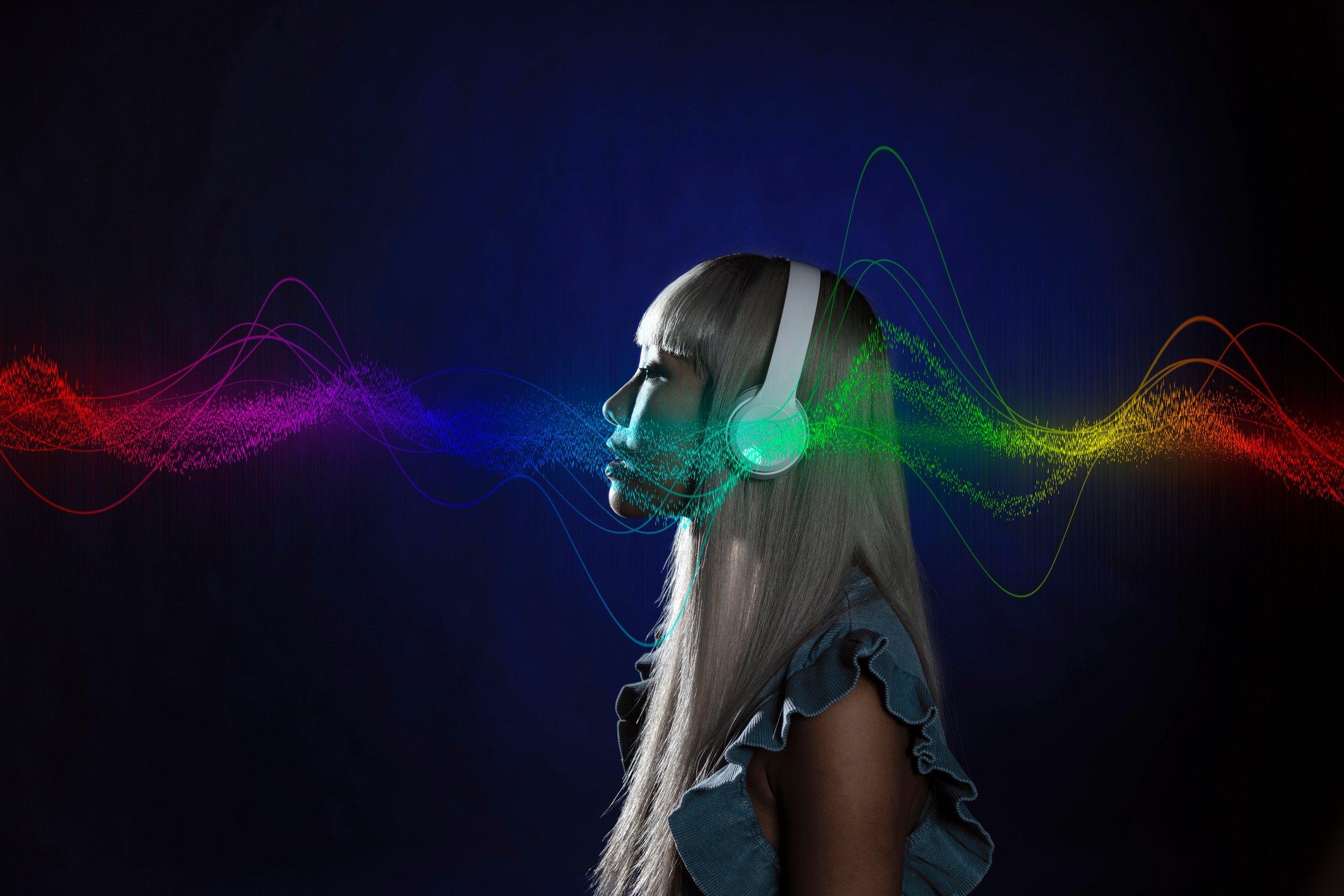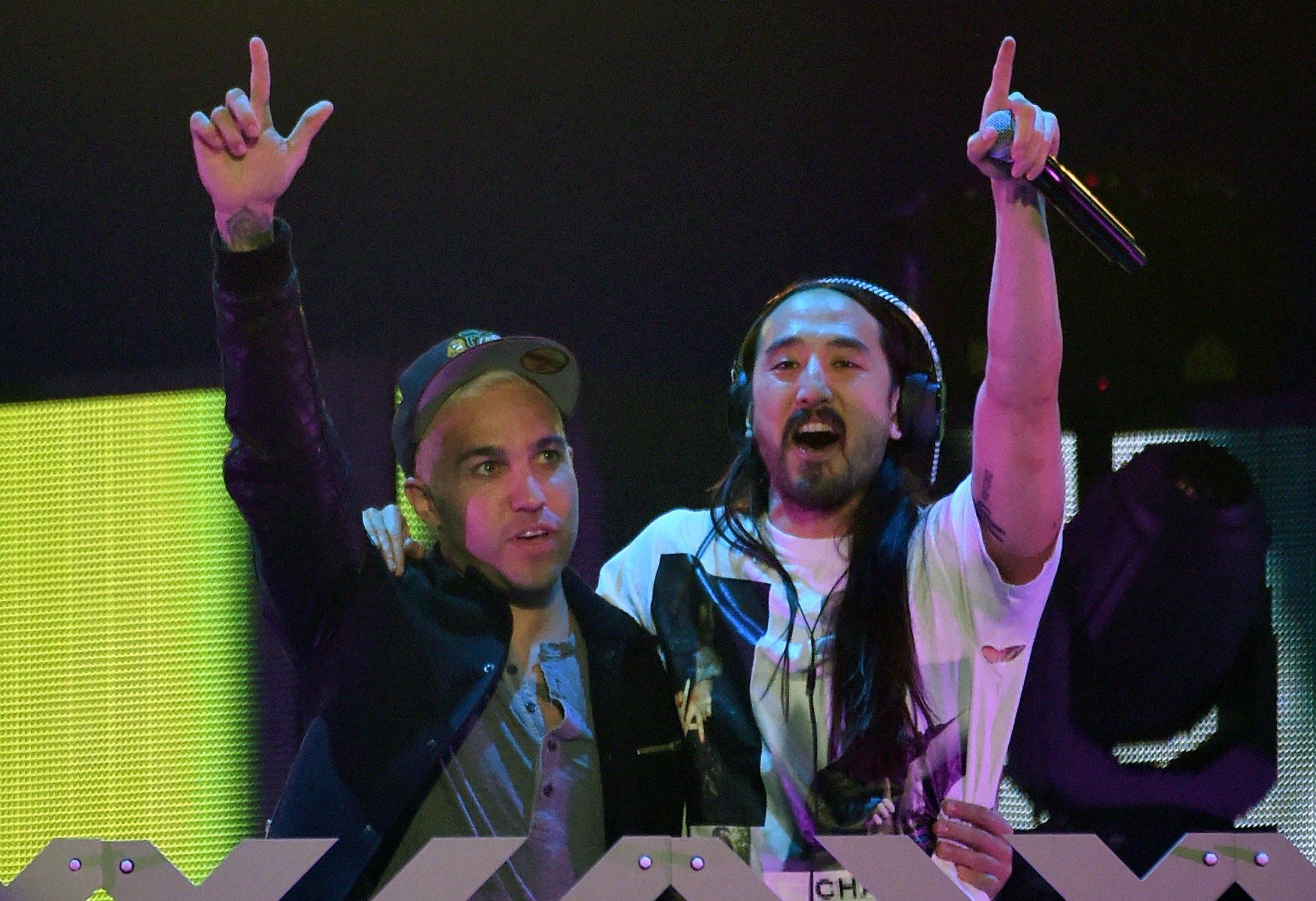Underneath much of dance music’s beat- and melody-driven landscape is shallow lyrical content — unless Camden Cox is holding the pen.
The 30-year-old singer/songwriter’s philosophy — write not just from the heart, but also from the soul — is a defining aspect of her fan-first artistic identity. This deeply personal creative process has also enabled her to transcend the genre’s vacuous, garden-variety lyricism.
Cox’s voice quivers as she recalls the start of the songwriting session that would spawn John Summit’s "Where You Are," a song that embodies this ethos. "I was going through a breakup and I was wondering if they were thinking about me as much as I was thinking about them. I take myself back to that moment and I get emotional talking about it," she says. "I just love putting emotions into my lyrics — it’s such an incredible feeling."
"Where You Are" is not the only dance/electronic consensus hit to which Cox lent her lyrical muscle this year. The British songstress also co-wrote "Escape," the single with which Kaskade and deadmau5 debuted their joint project, Kx5, in 2022. Penned by Cox, Hayla (who vocalizes its ruminative lyrics), Eddie Jenkins, and Will Clarke, the song was released on Kx5’s eponymous LP, which has been nominated for Best Dance/Electronic Music Album at the 2024 GRAMMYs. Fellow nominees in the category are Playing Robots Into Heaven from James Blake, the Chemical Brothers' For That Beautiful Feeling, Skrillex's Quest For Fire, and Fred again..'s Actual Life 3 (January 1 - September 9 2022).
Beyond her indomitable collection of writing credits for esteemed producers like Eli & Fur and Dombresky is a repertoire of work that’s entirely her own. Cox's recent work includes a solo single, October’s "Touching Me," and a just-dropped collab with Summit and Mathame called "Hungover" in which Cox is the featured singer.
In an interview with GRAMMY.com, Cox details her refusal to write anything "half-ass," subverting dance’s often tepid interest in lyrics, and how her time behind the decks has informed her approach to singing, songwriting, and DJing.
"Escape" and "Where You Are" were two of the biggest dance records this year. What about these songs caused them to skyrocket?
We followed the same formula. We wrote "Escape," and we had no idea that deadmau5 or Kaskade were going to get their hands on it. It was just a normal, ordinary session.
We wrote this song, knew it was amazing, and then nothing happened with it for a year or two. Then, all of a sudden, I heard this random demo from deadmau5; he'd done a version of it. Once Kaskade got involved, they revamped the whole song.
John Summit heard it and absolutely loved it; he was playing it out everywhere and he also did the official remix for it. His team reached out to us and said, "Can you write something similar?"
Deadmau5 has been an incredible influence on you, how did the song find its way to him?
Eddie Jenkins also wrote both of these songs with Hayla, and his management knew deadmau5’s management. He sent the song to deadmau5 and was like, "Hey, this your comeback, I think." It wasn't very deadmau5 [at that point]; it was a lot darker and a lot more progressive.
I've based my entire sound and influence around that [deadmau5 type of] sound...It was so validating because I spent my entire career, my childhood, and my teens listening to Random Album Title by deadmau5. As a writer, you write what you are inspired by because it's just in your blood, in your mind, in your soul.
So, it goes to show how much I did listen to Kaskade and deadmau5 to be able to get a song to them, however many years later.
There will always be a place for beat-driven tunes in dance, but do you also get the sense that people are looking for a little more emotional resonance from dance music now?
Yeah. What I love about these two records is they can be stripped to piano and they're literally like ballads. They're so meaningful and they’re so from the heart. We wrote them with absolute integrity — they’re not just something you throw away.
When you do these sessions where the writing just takes more time and effort, it's so worth it when you get the final outcome. I think people love that because you not only can rave to it, but you can cry to it as well.
How do you balance your lyric-forward approach in a genre where lyrics aren’t always as appreciated as they are in other genres?
It's such a tricky one because I've been in sessions where the songwriters have been like, "It doesn't matter what the lyrics are as long as the melody is good," but lyrics are my thing. I love writing lyrics. I always dig deep and take my time. I’ll have rhyming dictionaries open; it's an operation for me.
Even though lyrics can take a backseat, I don't let that affect the way I write. Even if people don't listen, I'm still going to write it from the soul, because you will get those musical people that want to break it down and hear the story, and they're the people who are really going to appreciate it. If one person can listen and appreciate it, that's good enough for me.
Do you often find yourself pushing back in these situations?
As I've grown in confidence and experience, I push back more and more. Whereas a lot of producers will say "Oh no, this is fine," I'll say, "No, I've heard it before." I've heard it a million times and I want it to mean something to me and to whoever gets to listen. Eventually, they just give in because they know that I'm not going to settle. So, I'll hone in on the lyrics, and then I'll send them a new version with better lyrical content.
You grew up in a very musical home; your dad loved rock and your mom, drum ‘n’ bass. How you made your way to dance music is clear, but what’s kept you here?
It's the one genre I just don't ever get bored of it. It's in my blood; I grew up on drum ‘n’ bass music, so I just love heavy, heavy beats and big basslines. As a little girl, I used to prance around singing along to the Prodigy and stuff like that, so it's in my soul.
I find that dance music is the most timeless genre. Pop is pop, and you’re always going to get songs that stick around for years, but those dance tunes that came out 20, 30 years ago that are absolute classics. In the dance world, when a song hits, it will stay with ravers forever, and I just think there's something really special in that. I listen to dance in my spare time when I'm not even working or writing. All I really listen to is dance.
You used to start your songs as poems. Tell me how that started; did you read a lot of poetry when you were younger?
I didn't read it, but when I first started writing, I struggled with lyrics. I remember the first song I wrote. I said to my mom, "Can you write me a poem and I'll make it into a song?" And she did. Then I asked my dad, and he did the same thing. I made them into a song, and that unlocked a part of my brain. After that, I just started writing the poetry.
Now, the melodies usually come before the lyrics, but if I have a sentence or something in my head that I think is really inspiring, I'll write it down. I never go full poems anymore. I go for a quote, for example. I recently found one, something "like remember when this all seemed impossible?" and I had a session with John Summit and I was like, "I wanna write that concept." So, I went in and sang something to those words. There’s no rules, and that’s what I love about it.
You’ve said you’ll often go into the studio and freestyle since the first take is often the best.
It's my favorite way to write. When I freestyle, I always do it with a handheld mic, because I just feel like I can be a bit freer; I can walk around, I can sit down. The trick is to put autotune on pretty full blast, with loads of nice reverb and delays and compression, so it almost sounds ready when you hear it back.
It'll all be a bit messy, but then you'll hear it back with the tuning on and you're like, Yeah, that's what I was trying to do. I just love working like that. I find it the most creative and the most productive because you come out with so much stuff and then you just narrow it down until you get the best three sections.
Learning how to DJ has to be transformative when it comes to conceptualizing new songs.
It’s helped me even further. Now being the one in control of the decks and understanding what keeps a crowd has unlocked a whole new world. It's crazy because I thought I knew everything that you could know about dance music — I grew up on it, I write it, I live and breathe it — but there's a whole other perception with DJing, and it's really helped me with my writing.
It's also hard to get a booking as a singer on a dance song. One of the reasons why I wanted to start DJing was because I knew I could probably get some bookings out of it. Two was because I'm writing all these dance songs, and all these DJs are playing them out and no one knows I've written them. I just wanted to get behind the decks and play my portfolio. It's opened up a whole new fan base for me.
Speaking of, you recently wrapped your first residency in Ibiza. How was that?
I go to Ibiza every year anyway, being a dance head, and I've been to all the clubs. I've gone and watched my songs being played out, but I just never envisioned myself doing it. And then this year, all these bookings flooded in because I started DJing.
I've only been DJing for a year and a half, but because I had already made a bit of a name for myself in the dance world as a singer when people started to realize I was DJing, I was getting bookings a bit easier. I started suddenly seeing my name on some posters and it all became very real.
I had the time in my life, but I also did find it very exhausting because there's so much traveling. Tour life is actually quite hectic, and it really hit me, but it was also very incredible and such a learning curve. Each gig, you learn something.
Now that you’re doing the singing, the songwriting, and the DJing, how do you find balance?
I'm a machine. I think I'm a bit of a workaholic because I just love it so much. I genuinely know how lucky I am that I get to do what I love for a living. But I found the more gigs I did, the more traveling I did, I knew that as much as I wanted to be in the studio — and I was getting offered good sessions — I'd have to turn them down because I knew I'd need a couple of days to recover.
I did my last show, and it felt so fulfilling. Now, I'm back in the studio, and I built up so much inspiration over the summer because I couldn't write as much as I wanted to, so I was bursting at the seams. I'm going like 100 miles an hour right now, writing five days a week. I'll be doing this until I burn out.
Given that you’ve been writing so frequently, what has the process of shaping your musical identity been like these days?
I feel like I'm starting to find a few identities in my writing. There's a darkness to what I'm writing, but there's a good balance between brightness and darkness, as in this raw emotion that will come out in a really pretty melody. I'm good at finding that balance where you could cry and dance to it.
Thinking about how this relates to your music, where do you hope to take your artist project next?
Getting nominated for a GRAMMY for something of my own is the dream. Getting nominated as a writer is such a big tick for me. So now, I want to aim for the next level, which is maybe getting nominated for something that I'm singing on, and eventually getting nominated for a GRAMMY for something that is just mine.
I've also got some really exciting collabs coming up. Me and John [Summit] have a song coming out together in two weeks. Right now, I'm establishing myself in London, in the UK a little bit, but it just takes a lot of time.
Some people have one song and then that's it — they're blowing up in the charts. It's not happened like that for me; I've been working away behind the scenes. I'm just hoping that through some collaborations, I will be introduced to new audiences who will then discover my music, which will allow me to keep releasing.
Kylie Minogue On The Freedom Behind 'Tension,' Being A Gay Icon & "Padam Padam"





